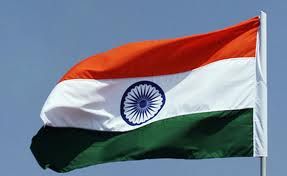
Saudi Arabia will sell crude to Indian refiners in August after Iran said it may no longer provide them with oil, people familiar with the situation said last week. Iran has said it resolved the payment dispute.
Organisation of Petroleum Exporting Countries (Opec) July crude output rose to the highest level in almost three years. Rabigh Refining and Petrochemicals said a cracking unit started after maintenance and that the company’s facilities will reach full capacity by August 15.
The following is a weekly summary of Gulf crude and product market news and forthcoming events:
Crude Oil: Saudi Arabian Oil Company, the state producer known as Saudi Aramco, will send 3 million barrels of crude to three Indian refiners to make up for a potential shortfall in supply from Iran, four people with knowledge of the matter said last week.
Bharat Petroleum, Essar Oil and Hindustan Petroleum will buy the additional Saudi crude, said the people, who declined to be identified because they weren’t authorised to speak to the media. Hindustan Petroleum will take 1 million barrels of the extra oil, K. Murali, the company’s Mumbai-based director of refineries, has said.
Saudi Aramco’s supplementary deliveries to the three refiners will load this month and include light and heavy grades, the people familiar with the August sales said.
Indian refiners say international sanctions against Iran over its nuclear programme have made banks unwilling to transfer payments for Iranian oil. Iran may halt crude exports to India starting today, state-run Fars news agency reported on July 18, citing an unidentified official in Iran’s Oil Ministry.
Seeking to resolve the impasse, Indian refiners opened accounts with state-owned Union Bank of India to route money through a Turkish lender, two people with knowledge of the matter said on July 29. Iran’s oil ministry said on Sunday the payments conflict has been resolved. India agreed that “part of the debts will be cleared in coming days and the rest of the payments will be made gradually,” the ministry’s news website Shana cited National Iranian Oil MD Ahmad Qalebani as saying.
Abu Dhabi National Oil, the state-run producer in the United Arab Emirates, will ship 5 per cent less of its four crude grades in September than it contracted to supply to long-term customers.
The company, known as Adnoc, will provide refiners with the same volumes of its Murban and Lower Zakum grades in September as it is scheduling for this month, after an identical supply cut for August. It will increase shipments of its Umm Shaif and Upper Zakum grades next month compared with August, for which it announced an 8 per cent cut below contracted amounts.
Opec crude output rose in July to the highest level since December 2008, led by Saudi Arabia and Angola, a survey showed. Production grew by 245,000 barrels a day, or 0.8 per cent, to average 29.565 million barrels, according to the survey of oil companies, producers and analysts. Daily output by the 11 members with quotas climbed by 230,000 barrels a day to 26.845 million.
Or 2 million barrels above target.
Saudi Arabia, the group’s biggest producer, increased output by 100,000 barrels, or 1.1 per cent, to 9.4 million barrels a day, the most since September 2008.
The main oil grades pumped by members of the Opec have traded at a combined average of more than $100 a barrel since February 21. This is the longest-ever period in triple digits for the so-called Opec basket price, calculated on the basis of one crude grade from each of the group’s 12 members.
In regional trading, Oman oil futures declined 0.6 per cent last week to close at $111.55 a barrel, according to data. Dubai crude fell 0.6 percent in the week to $111.09 a barrel.
Oman crude’s official selling price rose in September for the first time in two months as high prices for oil from West Africa and Russia forced refiners to buy more Middle Eastern grades. Oman exports will cost $110.78 a barrel, based on the average of daily futures settlement prices on the Dubai Mercantile Exchange.
That’s 2.7 per cent above the August level of $107.84 a barrel.
The spread between Dubai and Brent crudes narrowed last week, with Dubai selling for $5.65 a barrel less than the European benchmark on July 29, compared to a discount of $6.97 seven days earlier.
Light products
Qatar International Petroleum Marketing, or Tasweeq, sold naphtha and condensate from the Pearl gas-to-liquids plant, the ICIS chemicals news service reported, citing traders it didn’t identify. The shipments are for August loading from the plant, in which Royal Dutch Shell owns a stake.
Refineries
Rabigh Refining and Petrochemicals said its fluidised catalytic cracking unit has started after maintenance work. Servicing at all of the company’s facilities is complete, and the complex will reach full capacity by August 15, the company, known as PetroRabigh, said. PetroRabigh is a venture between Saudi Aramco and Sumitomo Chemical, Aden Oil Refinery received its first cargo of crude after repairs to the main oil pipeline in Marib, Yemen, as a shipment of 80,000 metric tonnes arrived from the port of Ras Eisa, the state-run Saba news agency reported. The pipeline was damaged by tribesmen from Marib in March.
Source: Bloomberg
We use cookies to improve your experience. By continuing to use our site, you accept our Cookies, Privacy Policy,Terms and Conditions. Close X